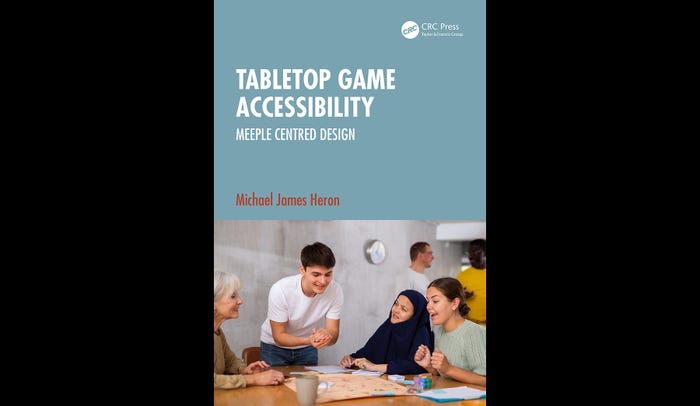This Week In Video Game Criticism: Horror, Casuality, Casualties
This week, our partnership with game criticism site Critical Distance brings us picks from Ben Abraham stretching from pieces on Dead Space 2 through casual trawls through games, to the industry's prob

[This week, our partnership with game criticism site Critical Distance brings us picks from Ben Abraham stretching from pieces on Dead Space 2 through casual trawls through games, to the industry's problems encapsulated.] Another week, another haul of the best game writing and criticism that the Internet can provide. First up this week is Chris Green’s look at ‘Demon’s Souls as Epic Poetry’ for Chronoludic. It’s worth reading because it’s an attempt at actually writing some epic poetry about Demon’s Souls; whether it works or not, it’s a step in an original direction that is worth pursuing and promoting. Speaking of Demon’s Souls, Matthew Armstrong at SnakeLinkSonic continues his discussion of the game linked to last week in his latest piece ‘Dying to Speak’. And Mike Schiller wrote a piece for the PopMatters Moving Pixels blog this week, all about ‘Sacrificing horror for the sake of human competition’. Schiller looks at whether multiplayer compromises the horror elements of Dead Space 2 and if the trade off is worth it. The single most outstanding piece I read this week was undoubtedly Christopher Thursten’s take on Metro 2033 at the Exit/Warp blog. Here’s an excerpt to whet your interest: "Like Bioshock, Metro 2033 is a game about the relationship between ideology and personal agency, set in the crumbling remains of a society trapped in a destructive and unsustainable holding pattern. Also like Bioshock, Metro 2033 treats conflict, in gameplay terms, as a transaction between the player and the game. Both are in this regard closer to first-person survival-horrors than first- person shooters, preferring to challenge the player with the threat of running out of ammo rather than the threat of receiving a surplus of ammo to the face." The real surprise comes in Thursten’s conclusions about the ‘morality’ system that Metro 2033 employs, and the games commitment to “tactile fidelity”. Persuasive stuff. Pippin Barr goes ‘Strolling in the Zen Game Garden’ and is inspired to consider strolling casually through video games more often: "What would it feel like to play Baseball Stars for the NES and to think about the smooth swing of the bat, the greenness of the field, the beauty in the curve of a pixellated pitch? What if, in returning to Final Fantasy XIII, I spent more time taking a walk, either skirting the enemies in my path or even pausing just to admire them?" Angelo of the Bergsonian Critique blog places ‘a critical eye on tear’ from Tales of the Abyss. We’ve seen quite a few character analysis and profiles of interesting JRPG characters of late – is there something in the water? And Jorge Albor at the prodigious Experience Points blog (who just recently celebrated their 100th podcast – congratulations Jorge and Scott) thinks about ‘Master Chief After Reach’, and comes to the conclusion: "In many ways, Halo: Reach retroactively makes Master Chief a more interesting and compelling character. I cannot help imagining what sort of camaraderie he may have had with Noble Six and other Spartan soldiers on Reach." Likewise, Albor’s blogmate Scott Juster has been busy writing for PopMatters this week about ‘Dusty Pixels and Patchwork Stories’, looking at how easy is it for developers to retroactively patch the endings or elements of their game, to drastically change the meaning and overall experience. It matters because it presents a challenge to maintaining games in their original ‘pristine’ condition. “Here is a game: Fairy Princess Escape” is a piece by Kirby at The Border House looking at what seems like a really interesting, progressive and open video game made just for girls. And yet: “Everything was going so well!… Until I beat the game and saw the win screen…” Lisa Foiles writes for Kotaku about ‘Breaking the Fourth Wall: Clever Gimmick or Slap in the Face?’ Foiles observes: "Games poking fun at themselves, by proudly proclaiming their fictional nature, is a gimmick that works well for [comedy games]; it keeps things light-hearted and fun. However, this technique feels awkward when used in more serious games that involve life-or-death situations. It almost feels like a slap in the face." Also at Kotaku, the new Australian editor Mark Serrels talks with games writer and academic James O’Connor about games stories, discussing Gears of War and Call of Duty’s meta-narratives. Observant readers will remember Michael Abbott’s take last week on Medal of Honor’s missed opportunity for meaningful engagement with real world issues, and so I present this as a counter-point to Abbott: Grayson Davis at Beeps and Boops writes in a piece called ‘Medal of Ice Cream’ advocating a more pragmatic attitude towards the FPS genre’s likelihood to convey meaningful messages. Davis argues, quite persuasively I think, that: "…we look too hard for insight in a genre that is fundamentally about pointing a gun at something and killing it; a genre defined by the immovable presence of a lethal weapon aimed at anything you happen to be looking at; a genre defined by the shooter, not the first-person." Fraser Allison at RedKingsDream hits one out of the park this week with ‘The biggest problem facing the games industry’: "Not the suits: they’d disappear in a month if we stopped supporting them. Not the angry ranty geeks: for all their lack of social graces, they often reserve their passion for the things that deserve to be supported. No, it’s the ordinary people who keep handing over their money for overproduced, soulless shit that doesn’t need to exist, either because they don’t know any better, or worse: even though they do." At BitMob this week, Alejandro Quan-Madrid has some “Concerns of Addiction, Race, and Penises in Call of Duty: Black Ops Multiplayer”: "When asked if they were concerned that Black Ops would have the same addictive hallmarks as traditional gambling, minus the real-world money, Olin responded that he "hopes so" but then backtracked a little bit." And Mitu Khandaker talks Kandinsky and Game Design - looking at emotionally affecting games, music and art, and a whole lot more besides. Daniel Purvis makes his triumphant return to game blogging/criticism while taking a few minutes to reflect on his time as a game critic writing for his now defunct blog Graffiti Gamer. It’s an honest take on what it’s like to put your ideas out there on the internet about these crazy things we call video games: "I never felt like I found my voice when I wrote for Graffiti Gamer. It wasn’t just a place to dump words, I tried to write like I had something to say, and to make it entertaining, yet I was forever doubting the validity of each topic and every word. Posting to Graffiti Gamer felt like a return to adolescence." And lastly in a week of big hits, here’s Jason Nelson’s newest digital poem (or ‘videograph fiction’ as he calls it) about Pac-Man, A Family of Dead Eaters. Well worth the two minutes it’ll take you to figure it out.
About the Author(s)
You May Also Like













